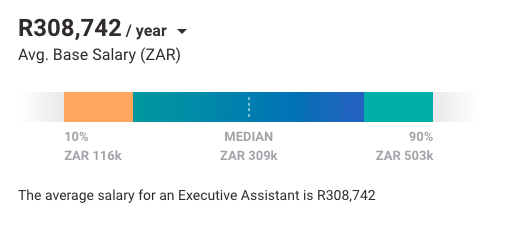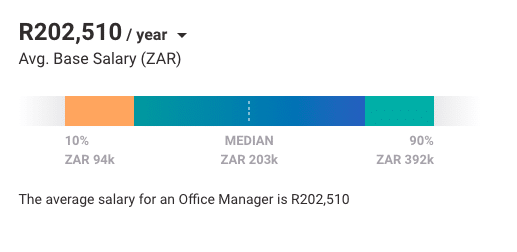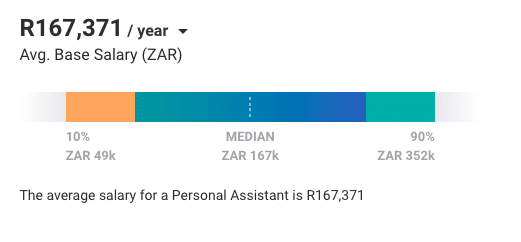
To include relevant and up-to-date information this article was recently revised for 2022.
In the office, an administrative clerk has the important function of handling the clerical, record keeping, and customer service tasks so that an office can function better and optimally. It’s a vital job and requires a hand that is efficient, meticulous, and whip-smart. If this sounds like you, then keep reading as we unpack what goes into being an administrative clerk and what it takes to pursue a career in this field.
What is an administrative clerk?
Administrative clerks do a wide variety of things, from taking care of general office paperwork to answering phones, ordering equipment and supplies, attending meetings on behalf of their employer, and more. In this article, you will learn more about the daily tasks administrative clerks take on in an effort to give you a better idea of whether or not you have what it takes to be successful in this career.
Office administrative clerk duties
Administrative clerks are responsible for a wide variety of tasks in an office environment. Depending on the company or organisation, they may be responsible for scheduling appointments, taking messages, maintaining records, handling correspondence, word processing, creating and printing documents, and many other tasks. General clerks also perform a wide variety of tasks in a business environment, depending on their environment. Below are some of the typical day to day duties of an administrative clerk:
- Filing
- Sorting and preparing memos
- Compiling, maintaining and updating company records
- Equipment inventory
- Research projects
- Supporting reception
- Diary management
- Schedule coordination
- Procurement
Skills of an admin clerk
If you enjoy organising and problem-solving then you could make a great administrative clerk. Being an administrative clerk means working with numerous stakeholders of a business, including customers and staff members. Being someone who is comfortable around others is imperative as it’s likely you’ll be working with many different people on a day-to-day basis. Some other key skills needed when considering a career as an administrative clerk include:
Organisational skills
Organisational skills are an important part of any professional and personal life. They encompass the ability to organise time, materials, and people and they can be learned and nurtured by anyone with a desire to develop this highly useful skill. There are many reasons to develop organisational skills, but one of the most important reasons is that it can help you get ahead in your career. In order to grow and move up in a company, you will need to have proven competency in this area..
Detail-oriented
As you’ll be working with many documents and scheduling, having an eye for detail is imperative. It’s easy to make mistakes as an administrative clerk, so being able to pick up the smallest inconsistencies or errors is essential for the role.
Various computer skills
Communication skills
Great time management skills
Being an administrative clerk might mean that you’ll be working on various projects simultaneously. Having a good sense of time management will allow you to give enough time to each project without getting overwhelmed or confused by the various duties being performed.

Register for an Office Admin course with iQ Academy
The Office Administration Course from iQ Academy will provide you with the relevant knowledge and skills to start your administrative clerk career. This Business Short Course can be completed over 6 months, with an average of 4 hours study time per week.
What will I learn in the course?
The curriculum covers a range of topics such as; the features, benefits and challenges of traditional and virtual offices; management systems and processes; business communication; diversity and ethics; technology; trends and much more! This short course will provide you with the theories and practices required to master the role of an office administrator and manage office operations. Here’s a quick look at the units in this course:
- Unit 1: Introduction to Office Administration
- Unit 2: Office Design and Layout
- Unit 3: Record Management and Data Filling
- Unit 4: Relationship Management and Customer Service
- Unit 5: Business Communications
- Unit 6: Business Etiquette
- Unit 7: Diversity and Ethics
- Unit 8: Office Administration Trends and Issues
How long is the course?
The Office Administration short course can be completed in 6 months with an average of 4 hours study time per week for 24 weeks. We do offer students the opportunity to complete the course over a 12 month period, but teaching and learning support from the course lecturer will only be available for the first 6 months.
What certification will I receive?
Upon successful completion of the course and meeting the required qualification criteria, you will receive a Short Course Certificate.
Career prospects for office administrative Clerks
Executive assistant
An executive assistant is a personal assistant to a senior executive. A career as an executive assistant has a focus on business administration, human resources, or related fields. The job of an executive assistant is to do administrative tasks, such as scheduling appointments, handling correspondence, maintaining files, and assembling documents for meetings.
Office manager
An office manager would be in charge of a company’s office, and the clerical staff. This would include overseeing projects, delegating responsibilities, and being a liaison between the company and the workers.
Bill and Account Collectors
Account Collectors are sometimes called “debt collectors”. They contact people who owe money to other companies and request the money owed.
Personal Assistant
The role of a personal assistant can be varied, but essentially they assist a specific person with their work duties and sometimes personal tasks as well. They are there to help their employer by taking on some of their workload that they don’t have the time to do such as answering phone calls, taking notes, scheduling meetings, emailing and more.
Similar articles
Apply online today
Enquire now and an Enrolment Consultant will call you back to answer any questions you have and start your application.
50,000 +
Registered and accredited
Private Higher Education







